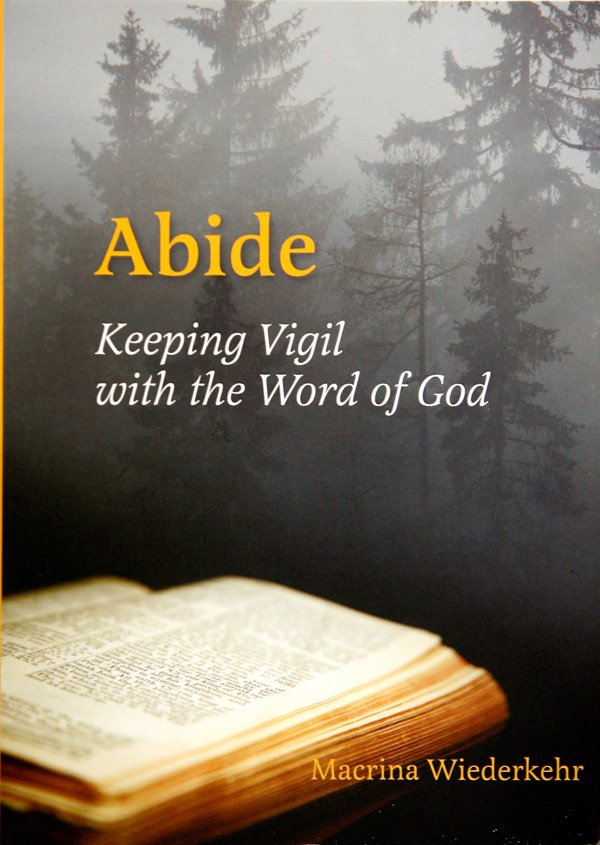FAYETTEVILLE — O God, you are my God - for you I long! For you my body yearns;
for you my soul thirsts, like a land parched, lifeless and without water.”
Sister Macrina Wiederkehr read the opening words of the 63rd psalm, inviting members of St. Joseph’s Women’s Fellowship to repeat them after her. She encouraged women to spend a little time each day in quiet prayer, creating an oasis of stillness in the midst of their busy lives.
Sister Macrina spoke to about 30 women at St.
Joseph Catholic Church in Fayetteville on Dec. 13.
The Benedictine nun is a member of St. Scholastica Monastery in Fort Smith, as well as an author, speaker and spiritual guide.
Her latest book, “Abide: Keeping Vigil with the Word of God,” formed the basis for her talk.
The book is a collection of scriptural meditations that leads readers into the ancient practice of lectio divina, or divine reading.
The contemplative practice is designed to create a “nest in the heart” in which communion with God can grow, Sister Macrina said. Scripture is not studied to obtain information but to open the heart to be formed by God.
“When you read, there will come a moment when something goes wide in your heart,” she said. The conditioned response is to keep on reading, but a meditative form of prayer asks for something else.
“The rule of thumb is, if God comes on the third verse, forget about the fourth,” the nun said.
“Or pause, at least briefl y,fi nish the passage and go back to the passage where you are moved.”
Sister Macrina encouraged women to make themselves “guesthouses for God.” She chose the word “abide” as the title of her book because it conveys a sense of sacredness. It’s not an everyday word but an intimate word, she said.
In the gospel of John, Jesus says, “Abide in me, as I abide in you” (15:4). That happens through prayer, Sister Macrina said. “Our lives become a prayer. We carry that with us.”
The prayer of the disciples was “Lord, teach us to pray,” the nun said.
Jesus gave them a format, but that doesn’t mean it is the only way. Prayer is a living process, she said.
“It doesn’t happen just one day, then it’s over. We know (our deepening in faith) continues.”
She tries to teach people to pray without words - to “sit in God,” Sister Macrina said. She recalled an incident from her early years as a nun. She sent the second and third graders she was teaching into the chapel to pray without words. One little girl was not ready to leave with her companions.
Sister Macrina asked her why.
“I did what you said,” the child replied. “I got into God, but now I can’t get out.”
“That’s what we’re all striving for,” the nun said.
“To abide, to fi nd thatunion with God - that we live with God and God lives in us.”
The chapter titles in her book describe the life of faith, Sister Macrina said. “Drawn Like a Magnet to the Divine” conveys the soul’s deep longing for God. That’s the longing described in the Psalm 63, a thirst as strong as for water in the desert.
“The Deepening Places” encourages believers to enter more fully into the mystery of God. “There’s always a way we can go deeper, always a way that God calls us (to more),” the nun said. She advised women to be gentle with themselves as they embark on this journey, to “embrace yourself with love.”
“The Beautiful Struggle of Daily Life” conveys the ongoing adventure of fi nding a sense of the sacred in all parts of life.
“The music in the brook is made by obstacles,” Sister Macrina said. There is grace available in every crisis. She encouraged women to follow Jesus’ example and take time for quiet prayer every day.
“In the spiritual life, the word ‘practice’ is very important. Everything we want to do or be or become, we have to practice.”
“Don’t Look Back” speaks to the distractions that keep faith lukewarm. The scripture texts invite a reflection on commitment.
Sister Macrina cited a saying from the gospel of Luke - “No one who puts his hand to the plow and looks back is fit for the kingdom of God”(9:62). That’s an example of “sacred hyperbole,” she said. “Jesus does that to get our attention. It’s not meant totally literally.”
“Return to Your Original Love” calls readers back to the flame of early devotion. It’s so easy to let that initial enthusiasm die, she said. A part of the spiritual life is to return - and return again, to start anew.
Sister Macrina invited women to join her in what she has dubbed “The Year of the Poet.” She encouraged women to look at their lives with eyes keyed to God’s presence.
“You’re not a poet because of what you write, but what you see,” she said. “Your homework for this year is to see with the eyes of the soul, with the eyes of the poet.”
Brenda Peralo, chairwoman of the women’s fellowship, said the nun’s presentation offered a much-needed reprieve from the busynessof the season.
“She made us all pause during Advent - refl ect and re-prioritize. She just sort of calms everybody.” Her poetic words help remind women of the inner longing for God they are often too busy to notice, Peralo said.
“She thinks out of the standard box, makes everybody grow closer to the Lord.”
Religion, Pages 8 on 12/22/2012

